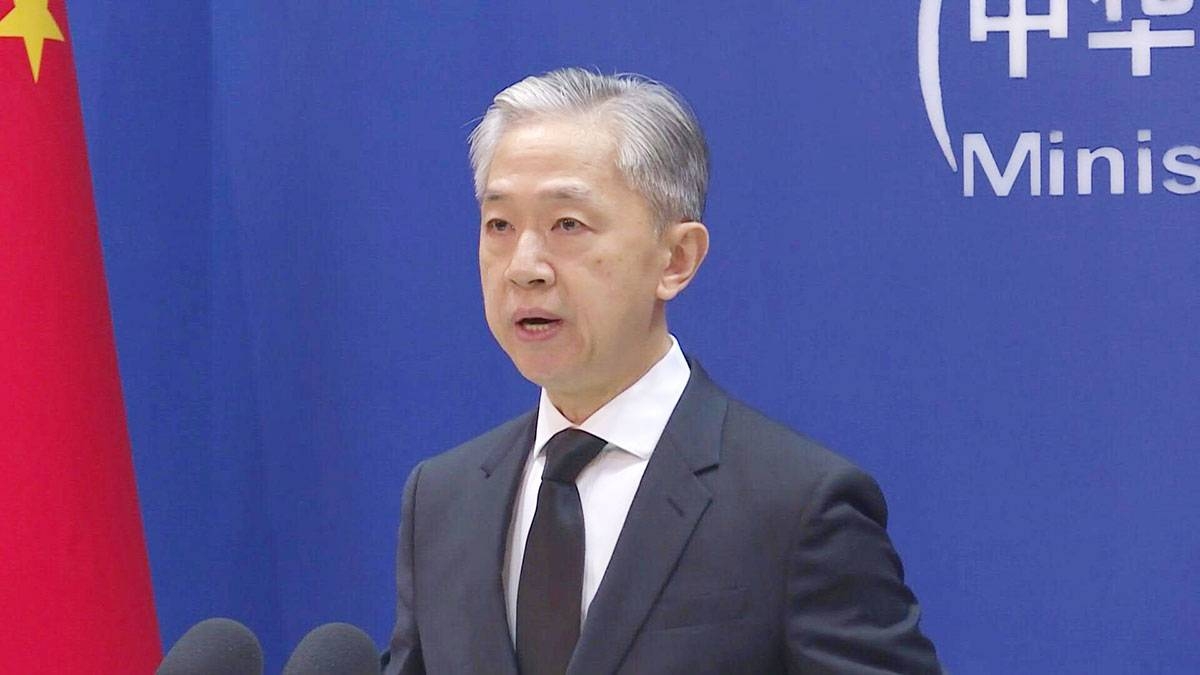China Urges the Philippines to Stop Instigating Disputes over the South China Sea
Chinese foreign ministry spokesman Wang Wenbin has called on the Philippines to cease using the South China Sea (SCS) issue as a means to provoke conflicts and rely on external forces to undermine peace and stability in the region. Wang’s remarks on Thursday were in response to Philippine President Ferdinand “Bongbong” Marcos Jr., who stated that the Philippines had not rejected any proposal made by China. However, Marcos criticized Beijing for basing its expansive claim on the ’10-dash line,’ which is not recognized by any country or international body.
In his statement, Marcos emphasized his commitment to defending the Philippine constitution, which clearly defines the country’s territorial area, including both maritime and land-based territory. He expressed his concerns about China’s premise in its discussions with the Philippines, stating that it is challenging to find a way forward without addressing this issue.
Wang, on the other hand, reiterated China’s stance on the South China Sea, asserting that China has territorial sovereignty, as well as maritime rights and interests in the region and its islands, known as Nanhai Zhudao. He emphasized that China’s claims are consistent with relevant international law and practice. Wang pointed out that China has an exclusive economic zone and continental shelf based on the Nanhai Zhudao islands. He also highlighted China’s historic rights in the South China Sea, which have been upheld by successive Chinese governments since 1948.
Contrary to the accusations made by the Philippine side, Wang clarified that China has never claimed the entire South China Sea as its own. He denounced the deliberate distortion of China’s position and stated that the Philippines’ assertion that China claims all waters within the dotted line as its territory is not in line with the facts. Wang emphasized that China is committed to resolving maritime differences through negotiation and consultation with the countries directly involved, while respecting historical facts.
Wang further stated that, while seeking a solution to these differences, China is ready to work with the countries directly concerned to manage the situation at sea. China aims to achieve win-win results through maritime cooperation and jointly safeguard peace and stability in the South China Sea. This approach reflects China’s willingness to engage in peaceful dialogue and cooperation with its neighboring countries.
It is crucial for the Philippines and China to find common ground and address their differences through diplomatic channels. Both countries should prioritize peaceful negotiations and respect international law to ensure the stability and security of the South China Sea. By fostering open communication and understanding, the Philippines and China can work towards a mutually beneficial resolution that upholds the rights and interests of all parties involved.
International Implications and Importance of Resolving the South China Sea Dispute
The South China Sea issue holds significant international implications due to its strategic location and rich resources. The region is a vital shipping route, facilitating the transportation of goods and energy resources between Asia, Europe, and the Middle East. It is also home to abundant fisheries and potential oil and gas reserves.
The dispute over the South China Sea involves not only the Philippines and China but also other neighboring countries, including Vietnam, Malaysia, Brunei, and Taiwan. These countries have overlapping territorial claims and have been engaged in territorial disputes for many years.
The international community has a vested interest in the peaceful resolution of the South China Sea dispute. Any escalation of tensions in the region could have far-reaching consequences, affecting global trade, regional stability, and the freedom of navigation. It is crucial for all parties involved to adhere to international law, including the United Nations Convention on the Law of the Sea (UNCLOS), and engage in peaceful dialogue to find a mutually acceptable solution.
The Way Forward: Diplomacy and Cooperation
To achieve a lasting resolution to the South China Sea dispute, diplomatic efforts and cooperation are essential. The Philippines and China, along with other claimant countries, should prioritize dialogue and negotiations to address their differences. By engaging in peaceful discussions, they can work towards a mutually acceptable solution that upholds the principles of international law and respects the rights and interests of all parties involved.
Furthermore, regional mechanisms, such as the Association of Southeast Asian Nations (ASEAN), can play a significant role in facilitating dialogue and promoting cooperation among the claimant countries. ASEAN’s commitment to maintaining peace and stability in the region provides a platform for constructive engagement and the pursuit of common goals.
It is crucial for all stakeholders to exercise restraint, refrain from provocative actions, and avoid escalating tensions. Confidence-building measures, such as joint maritime patrols and information sharing, can help build trust and reduce the risk of misunderstandings or miscalculations.
Ultimately, a peaceful resolution to the South China Sea dispute is in the best interest of all parties involved. By working together and adhering to the principles of international law, the Philippines, China, and other claimant countries can contribute to regional stability, promote economic development, and ensure the sustainable management of the South China Sea’s resources.
Source: The Manila Times








